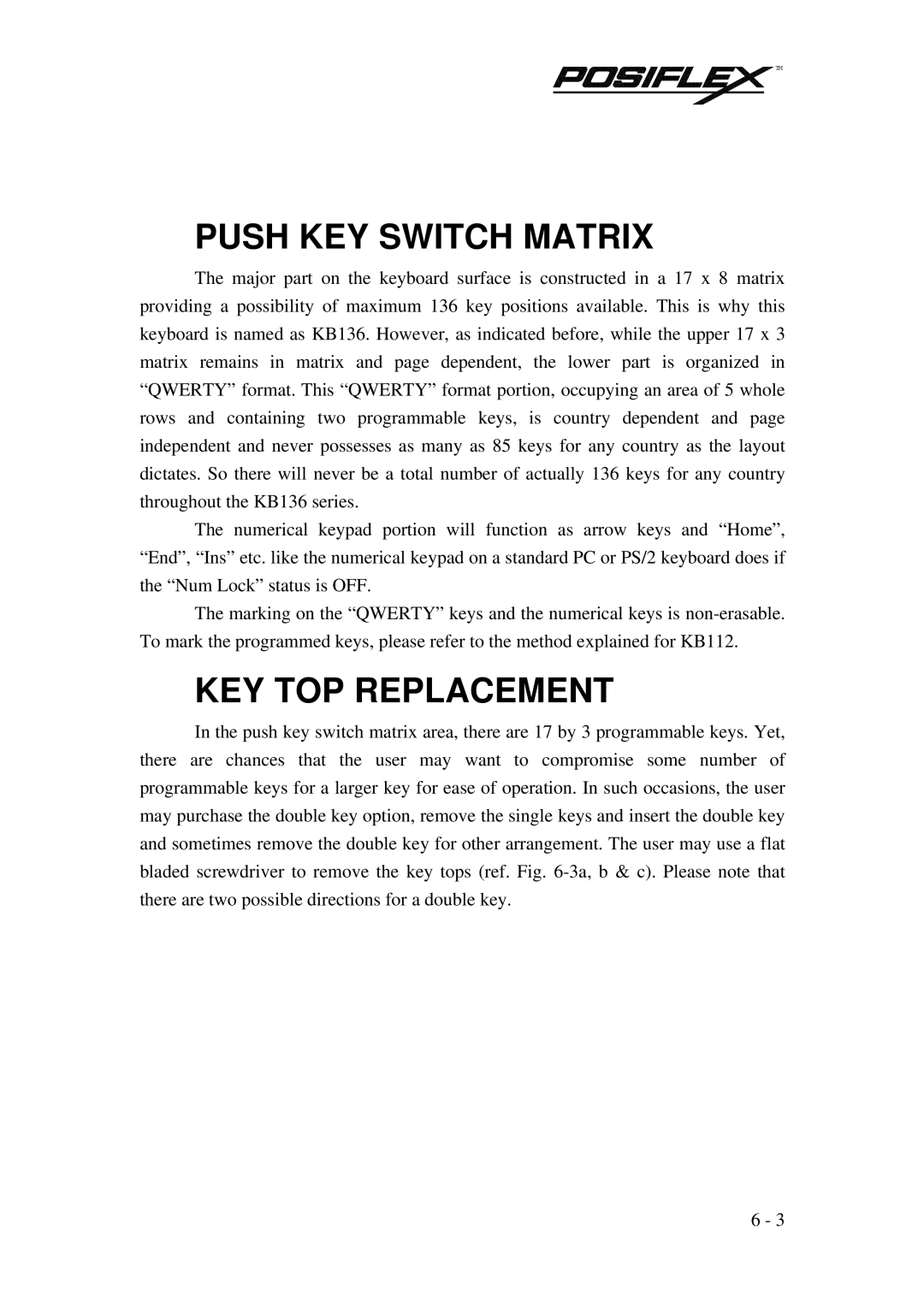![]()
![]()
![]()
![]()
![]()
![]()
![]()
![]()
![]() TM
TM
PUSH KEY SWITCH MATRIX
The major part on the keyboard surface is constructed in a 17 x 8 matrix providing a possibility of maximum 136 key positions available. This is why this keyboard is named as KB136. However, as indicated before, while the upper 17 x 3 matrix remains in matrix and page dependent, the lower part is organized in “QWERTY” format. This “QWERTY” format portion, occupying an area of 5 whole rows and containing two programmable keys, is country dependent and page independent and never possesses as many as 85 keys for any country as the layout dictates. So there will never be a total number of actually 136 keys for any country throughout the KB136 series.
The numerical keypad portion will function as arrow keys and “Home”, “End”, “Ins” etc. like the numerical keypad on a standard PC or PS/2 keyboard does if the “Num Lock” status is OFF.
The marking on the “QWERTY” keys and the numerical keys is
KEY TOP REPLACEMENT
In the push key switch matrix area, there are 17 by 3 programmable keys. Yet, there are chances that the user may want to compromise some number of programmable keys for a larger key for ease of operation. In such occasions, the user may purchase the double key option, remove the single keys and insert the double key and sometimes remove the double key for other arrangement. The user may use a flat bladed screwdriver to remove the key tops (ref. Fig.
6 - 3
